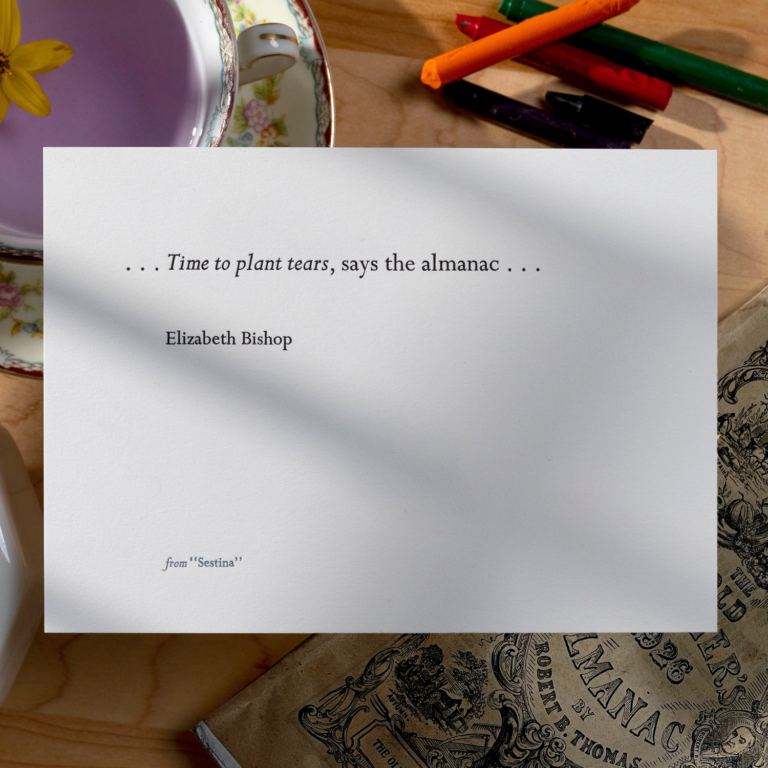This sestina poem considers a scene from Elizabeth Bishop’s own childhood through the sounds of six repeating words: house, grandmother, child, stove, almanac, tears. These six words repeat — in different order — as the final words of the poem’s lines, creating a kind of contemplation on how those repeated words informed her childhood: a childhood marked by loss, displacement, and a kind grandmother. “Time to plant tears” the poem states, in one of its most famous lines, as if the scene recalled has information about the future.
View
- List View
- Standard View
- Grid View
2 Results
The Pause
Join our constellation of listening and living.
The Pause is a monthly Saturday morning companion to all things On Being, with heads-up on new episodes, special offerings, event invitations, recommendations, and reflections from Krista all year round.
Search results for “”
View
- List View
- Standard View
- Grid View
Filters
Listen
Read

